Now that winter is quickly approaching, it’s time again to think about your HVAC system. There are many myths that circulate at this time of year many of which are centered on saving you money. Depending on the situation in your home, some could save you money but many can cost you. Your friendly heating and cooling specialists at Snyder Air Conditioning, Plumbing & Electric would like to take a moment to sort fact from fiction.
Myth: Closing vents can save energy
Many heating and cooling myths might seem logical such as closing off the vents in rooms you aren’t using and keeping a fan on all day, but those myths only end up costing you more money.
Your heating and cooling unit is designed to push air through the entire house. When vents and registers are turned off, pressure builds up in the ductwork causing your unit to work harder. This could lead to higher energy usage or even costly repairs.
Myth: Fans cool rooms
Fans do help circulate air and can make you feel much cooler, however this effect doesn’t actually cool the room. Leaving fans on when no one is around only uses more energy and raises your utility bills. Anytime you can turn off appliances such as fans, computers or lights, you should always do so.
Myth: The location of the thermostat does not affect its functionality
Speaking of saving money, did you know the location of a thermostat can affect how cool or warm your home is? Your thermostat should be placed in an area where there are no drafts, out of direct light and away from heat sources such as the kitchen. This way you have a more accurate reading of the temperature of your home. If you have more than one level, you might consider putting in a second thermostat or even a separate HVAC unit for the second level. This cuts down on the stress of your unit and helps keep you comfortable no matter where you are in your home.
Myth: Turning off your thermostat saves money
At times, it will be tempting to turn the thermostat all the way up or down (heat or cooling) to get your home comfortable. It might seem as though this is a good idea, but it doesn’t save you money. Furnaces and air conditioners deliver a constant temperature of air so turning the thermostat higher will not get the room warmer or cooler any quicker. In fact, you will use more energy by practicing this than simply leaving the thermostat at your preferred setting.
Does turning down (or up) the thermostat during the night or when you are out save you money? Indeed it does! By adjusting the thermostat up or down (depending on the season) when you aren’t in the home you can save money. Digital thermostats can be programmed to reduce energy usage but bring your home to a more comfortable temperature before you get home. By reducing energy costs 8 hours a day, you can save a moderate amount on our energy bill.
Myth: You’ll immediately see savings after investing in an energy-efficient unit
Many people expect their energy bills to drop immediately after buying an energy efficient unit. In many cases, energy bills do drop unless you have an improperly installed or sized system. A smaller heating and cooling unit will have to work harder in order to heat or cool your home. Dirty duct work, improper seals and even old insulation can cause your home to waste heating and cooling. In these cases, your bill could be even higher even with a new unit.
Another thing to note about high-efficiency units, purchasing high-efficiency units can greatly increase the sales appeal of your home. Many states offer incentives to purchase and install energy-efficient appliances. Many homebuyers are often willing to pay more for a home with upgraded appliances. And even if you aren’t selling at this time, you can reap in the benefits of saving up to $1000 annually on heating and cooling costs.
How To Prolong Your HVAC Unit
You can help prevent emergency calls by having regular maintenance checkups scheduled for your HVAC unit. An HVAC checkup can often catch minor issues before they become a big problem. A professional HVAC specialist will check the condition of your unit and if necessary, help winterize it or get it ready for summer. Scheduling is easy!
Another way to save money is to change your air filters at least every three months. Your air filter is very important to your HVAC system. Because your heating or cooling unit depends on the air intake, a clean filter allows air to pass through much easier. Dirty air filters cause more stress on your unit, making it work harder and sometimes causing cooling or heating issues. If you have problems remembering to check the filter, schedule yourself a reminder on your computer or mark it on the calendar.
We hope that we have put some of these heating and cooling myths to rest. If you have any questions or concerns about your HVAC unit, contact Snyder Air Conditioning, Plumbing & Electric. One of our trained service professionals will be happy to answer your questions.


